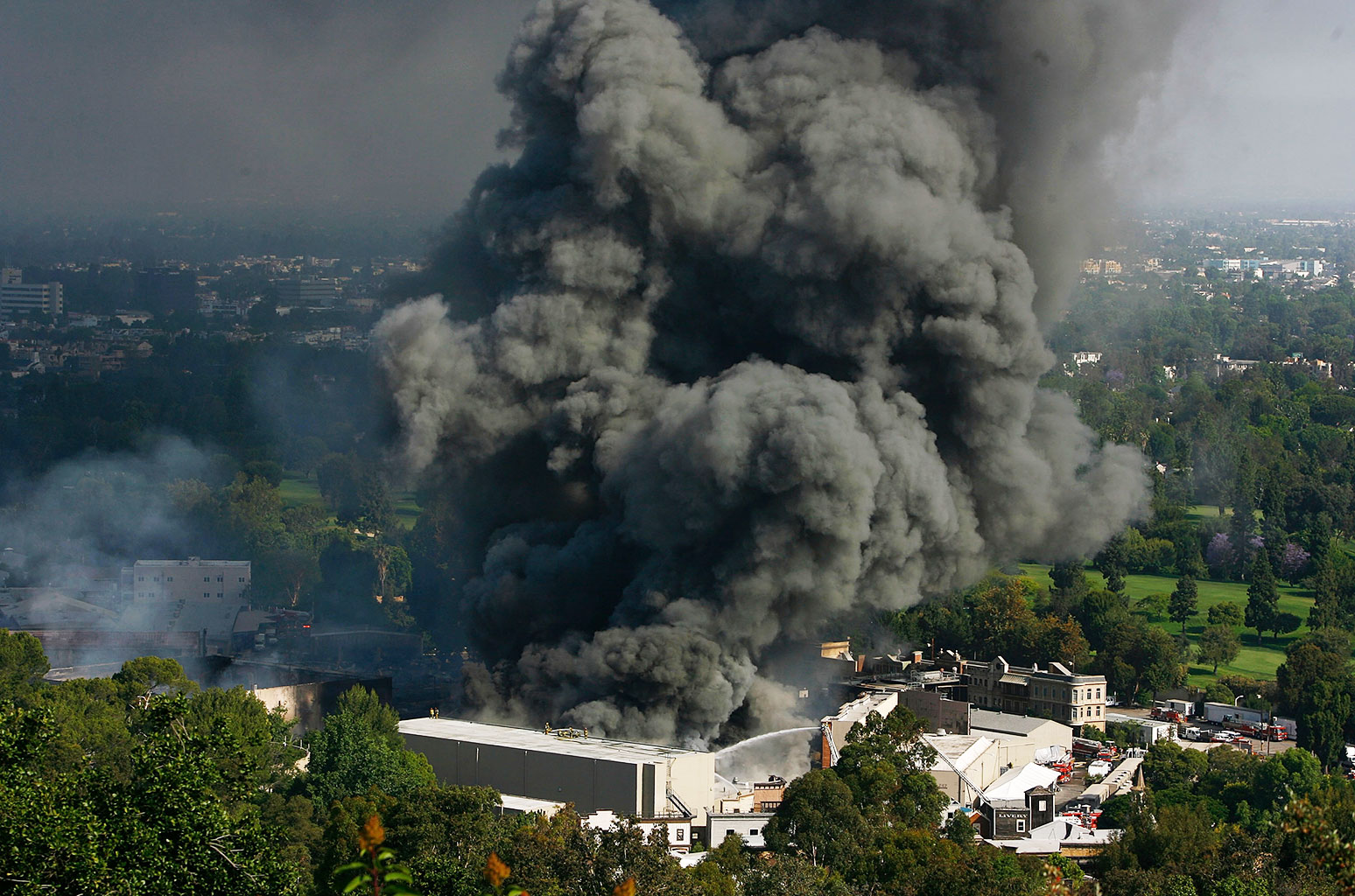A group of artists, their heirs and representatives of their estates filed a putative class action lawsuit against Universal Music Group (UMG) on Friday over a 2008 fire that destroyed up to 500,000 master recordings in the record company's archive vaults, according to an earlier New York Times article investigative report.
The lawsuit was filed by Soundgarden, Tom Whalley on behalf of the Afeni Shakur Trust that oversees Tupac Shakur's estate, Tom Petty's ex-wife Jane Petty, Hole and Steve Earle. They are seeking to recover half of any settlement proceeds and insurance payments received by UMG and half of any remaining loss of value not compensated by such settlement proceeds and insurance payments. According to the lawsuit, UMG's litigation and insurance claims following the fire were reportedly valued at $150 million to recoup the value of the master recordings -- none of which was directly shared with artists.
"UMG concealed its massive recovery from Plaintiffs, apparently hoping it could keep it all to itself by burying the truth in sealed court filings and a confidential settlement agreement," reads the complaint. "Most importantly, UMG did not share any of its recovery with Plaintiffs, the artists whose life works were destroyed in the Fire—even though, by the terms of their recording contracts, Plaintiffs are entitled to 50% of those proceeds and payments."
The lawsuit goes on to describe a "systematic and fraudulent scheme of misrepresentation and misdirection" by UMG to coverup the lost masters, citing press accounts at the time based on statements by company spokespersons dramatically downplaying the fire's damage. For instance, a UMG rep told Billboard at the time, "We had no loss, thankfully. We moved most of what was formerly stored there earlier this year to our other facilities. Of the small amount that was still there and awaiting to be moved, it had already been digitized so the music will still be around for many years."
Even still to this day, despite UMG CEO Lucian Grainge's promise to deliver artists "transparency" and "answers" -- the filing states the company has failed to inform the plaintiffs "that any Master Recordings embodying musical works owned by them were destroyed in the fire, and has refused to disclose or account to Plaintiffs for settlement proceeds and insurance payments received by UMG for the loss of the Master Recordings."
The lawsuit also charges UMG breached a duty of care to artists "through its negligence in storing the Master Recordings in the firetrap that was the Universal Studios backlot warehouse" where in 1990 "a similar fire in 1990 destroyed a similar area on the back lot." Ironically, in UMG's lawsuit against the backlot's leaser NBCUniversal (which was settled in 2013), the company made similar claims of negligence that led to such severe damage from the fire.
The plaintiffs' claim of "bailment" -- where "there is an implied obligation of good faith and fair dealing that neither party to the contract will undertake actions to deprive the other party of the expected fruits and benefits of the contractual relationship" -- states they will be deprived of future royalties as a result of UMG's negligence. As well, it notes these artists expected to one day be able to reclaim and exploit their masters due to copyright law's termination provisions, which "would not be meaningful if the Master Recordings embodying their musical works were not preserved and maintained since they are the most complete expression of the copyrighted musical work." For this the plaintiffs are seeking more than $100 million in compensatory damages for a total amount to be determined at trial.
The lawsuit's proposed class is defined as "All persons or entities, and their heirs, successors and assigns, who entered into recording agreements with UMG providing for a 50/50 sharing of revenues from furnishing, licensing or authorizing the use by others of Master Recordings embodying their musical works, which Master Recordings were stored in a warehouse leased by UMG at the Universal Studios backlot and destroyed in a fire on or about June 1, 2008." The plaintiffs believe there are hundreds of class members.
Universal Music Group declined to comment.
This article originally appeared on Billboard.






